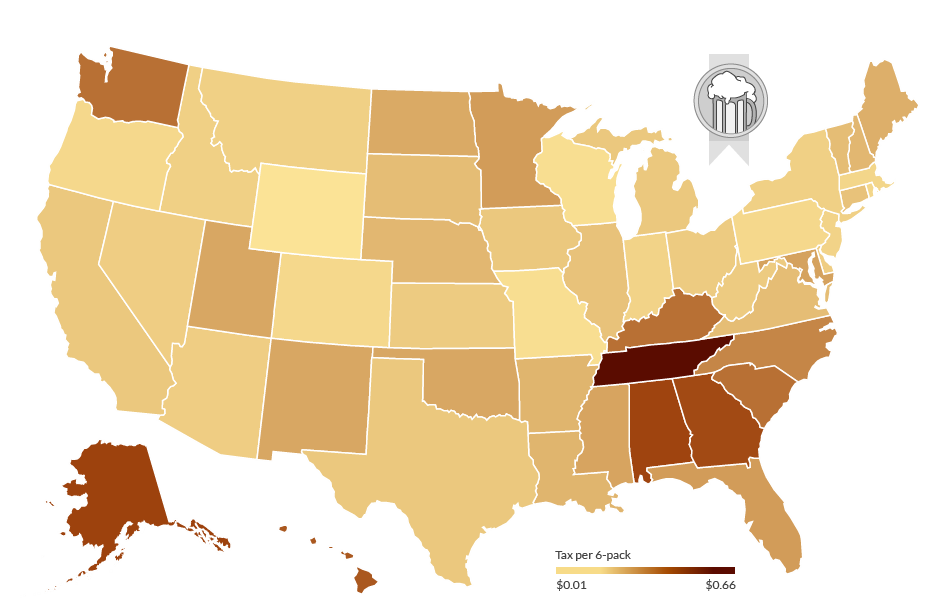In the Doghouse
Search
You are here: Home  Watchdogging
Watchdogging  In the Doghouse
In the Doghouse  While Beer Taxes Slide, Industry Profits & Public Health Suffers
While Beer Taxes Slide, Industry Profits & Public Health Suffers
 Watchdogging
Watchdogging  In the Doghouse
In the Doghouse  While Beer Taxes Slide, Industry Profits & Public Health Suffers
While Beer Taxes Slide, Industry Profits & Public Health SuffersWhile Beer Taxes Slide, Industry Profits & Public Health Suffers
 June 25, 2013
June 25, 2013A recent post in CNNMoney noted the wide discrepancy in state beer tax rates and implied that excise taxes harm consumers, particularly in Tennessee, which currently levies the highest rate (at $0.06 a beer, not exactly breaking anyone's bank). The post also ignored the public health and financial necessity of alcohol excise taxes, and relied heavily on alcohol industry trade groups to make the one-sided case that was presented.
Excise taxes help to reduce consumption and offset the staggering cost of alcohol-related harm in the U.S. Costs due to alcohol-related harm, including crime, disease, and injuries, add up to $94 billion annually, or $0.80 per drink--costs that are borne directly by federal, state and local governments, and paid by the public--its citizens. Federal, state and local alcohol excise taxes combined make up only $0.15 per drink. Taxpayers pick up the tab for the remaining $0.65 in alcohol-related costs.
The alcohol industry’s go-to trope - that beer taxes are regressive and harm the middle class - is simply false. One-third of Americans don’t even drink alcohol, yet they still pay the cost of alcohol related-harm not covered by excise taxes. Those with higher incomes drink more, and those who drink the most will pay the most in alcohol taxes. Finally, despite the industry's everlasting woe-is-me stance, most of the taxes that it pays are business-related, such as payroll and sales tax. These are taxes that every U.S. industry must pay.
Alcohol taxes are the single most effective policy to reduce alcohol-related harm. Raising taxes significantly reduces consumption, particularly among underage youth. Doubling the alcohol tax would reduce alcohol-related mortality by 35%; traffic crash deaths by 11%; sexually transmitted disease by 6%; and crime by 1.4%.
Tennessee’s legislature recently gave in to the Beer Institute’s influence and changed the state’s beer excise tax, based on wholesale price and linked to inflation, to a flat rate per gallon. Even as wholesale prices increase each year, the state’s revenue will decrease - and continue to decrease. Meanwhile, as consumption rises, so will alcohol-related harm and its associated costs in the state. It’s a lose-lose for Tennessee’s coffers, as well as its public health and safety.
Help us hold Big Alcohol accountable for the harm its products cause.
| GET ACTION ALERTS AND eNEWS |
STAY CONNECTED    |
CONTACT US 24 Belvedere St. San Rafael, CA 94901 415-456-5692 |
SUPPORT US Terms of Service & Privacy Policy |
Copyright © 2026 Alcohol Justice. All Rights Reserved.
Joomla! is Free Software released under the GNU General Public License.

